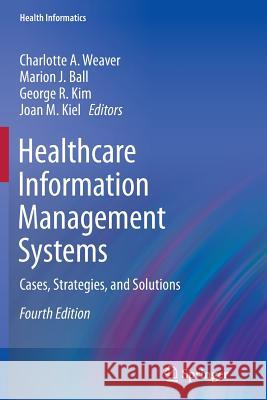Healthcare Information Management Systems: Cases, Strategies, and Solutions » książka
topmenu
Healthcare Information Management Systems: Cases, Strategies, and Solutions
ISBN-13: 9783319307589 / Angielski / Miękka / 2015 / 618 str.
Kategorie BISAC:
Wydawca:
Springer International Publishing AG
Seria wydawnicza:
Język:
Angielski
ISBN-13:
9783319307589
Rok wydania:
2015
Wydanie:
2015
Ilość stron:
618
Waga:
0.88 kg
Wymiary:
23.39 x 15.6 x 3.3
Oprawa:
Miękka
Wolumenów:
01
Dodatkowe informacje:
Wydanie ilustrowane











